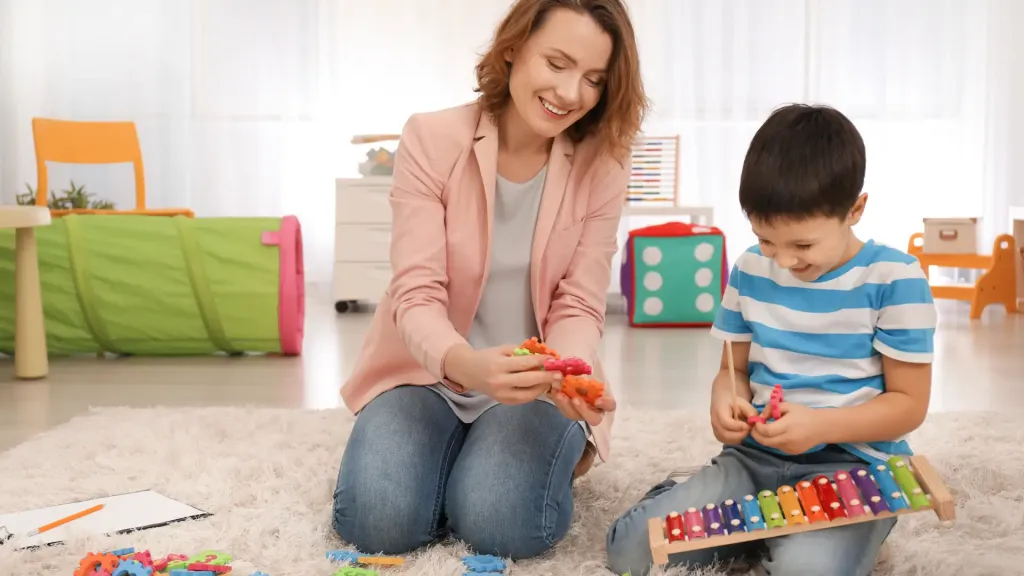
How Pediatricians Can Support Children with Learning Disabilities
Children with learning disabilities often face challenges in academic settings, and their families might struggle to find the right support. Pediatricians play a critical role in recognizing and addressing these challenges early on, ensuring that children receive the necessary help to thrive in their learning environments. This article explores the vital ways pediatricians can support children with learning disabilities, from early diagnosis to ongoing care and interventions.
Recognizing Early Signs of Learning Disabilities
The earlier a learning disability is detected, the sooner effective interventions can begin. Pediatricians are often the first healthcare professionals to notice signs of a learning disability in children. Common signs include difficulty with reading, writing, math, or following instructions. Pediatricians are trained to observe developmental milestones and identify any delays or discrepancies that may point to a learning disability.
Once a pediatrician recognizes potential signs, they can guide parents to seek specialized testing or refer them to a pediatric neuropsychologist or educational specialist. Early diagnosis can make a significant difference in the child’s academic journey, leading to timely support.
Providing Support Through Diagnosis and Referral
After recognizing the signs, pediatricians can assist families in navigating the diagnostic process. A diagnosis of a learning disability involves a comprehensive assessment, which often includes academic testing, IQ testing, and evaluations of cognitive and behavioral skills. Pediatricians can refer families to qualified specialists who can conduct these assessments, helping families understand the nature of the child’s challenges.
Pediatricians can also coordinate with schools to ensure that the child’s educational needs are met. They can advocate for individualized education plans (IEPs) or 504 plans, which provide accommodations to children with learning disabilities, such as extra time on tests or specialized teaching methods.
By referring children to the right specialists, pediatricians ensure that children receive appropriate interventions and support tailored to their specific needs.
Coordinating Care with Schools and Therapists
A key role for pediatricians is ensuring that the child’s care is integrated between home, school, and therapy services. Pediatricians can collaborate with teachers and school counselors to develop a holistic approach to support the child’s development. Regular communication between the pediatrician and the child’s educational team ensures that everyone is on the same page and working toward the same goals.
In addition to coordinating with schools, pediatricians can also refer children to speech therapists, occupational therapists, or behavioral therapists, depending on the nature of the learning disability. These professionals can provide targeted interventions that address specific challenges, such as fine motor skills, speech and language difficulties, or social and emotional development.
Encouraging Parental Involvement
Pediatricians also play an important role in guiding parents through the challenges of raising a child with a learning disability. They can provide advice on strategies to support the child at home, such as creating a structured routine, offering positive reinforcement, and breaking tasks into smaller, more manageable steps.
Additionally, pediatricians can help parents understand the importance of self-advocacy for their child. Encouraging children to speak up about their learning challenges can help them gain confidence and learn to navigate educational and social situations more effectively.
At times, pediatricians may recommend support groups for parents of children with learning disabilities. These groups offer a sense of community and can help parents share resources and coping strategies.
Promoting Social and Emotional Well-being
Children with learning disabilities often experience frustration, low self-esteem, and anxiety, especially if they struggle to keep up with their peers. Pediatricians can support the social and emotional well-being of these children by addressing mental health concerns early. They can refer families to child psychologists or counselors who specialize in helping children with learning disabilities cope with emotional challenges.
Pediatricians can also encourage strategies to boost the child’s self-esteem, such as celebrating small successes and helping the child develop strengths outside of academics. Fostering a positive mindset and resilience can empower children to overcome obstacles and stay motivated.
Collaborative Efforts in Pediatric Care
For pediatricians, supporting children with learning disabilities requires a collaborative approach. Whether it’s working with schools, therapists, or parents, the pediatrician’s role in coordinating care ensures that the child’s educational, emotional, and physical needs are addressed.
One excellent resource for families seeking pediatric support in the Scranton area is pediatrics of northeast PA. Pediatricians in this region offer comprehensive services, from early assessments to ongoing care, helping children with learning disabilities access the support they need for success.
Conclusion
Pediatricians are a crucial part of the team that supports children with learning disabilities. By recognizing early signs, providing appropriate referrals, and offering guidance to families, pediatricians ensure that children have the resources they need to succeed in both academic and social environments. With early intervention, effective care, and ongoing support, children with learning disabilities can thrive and reach their full potential.
